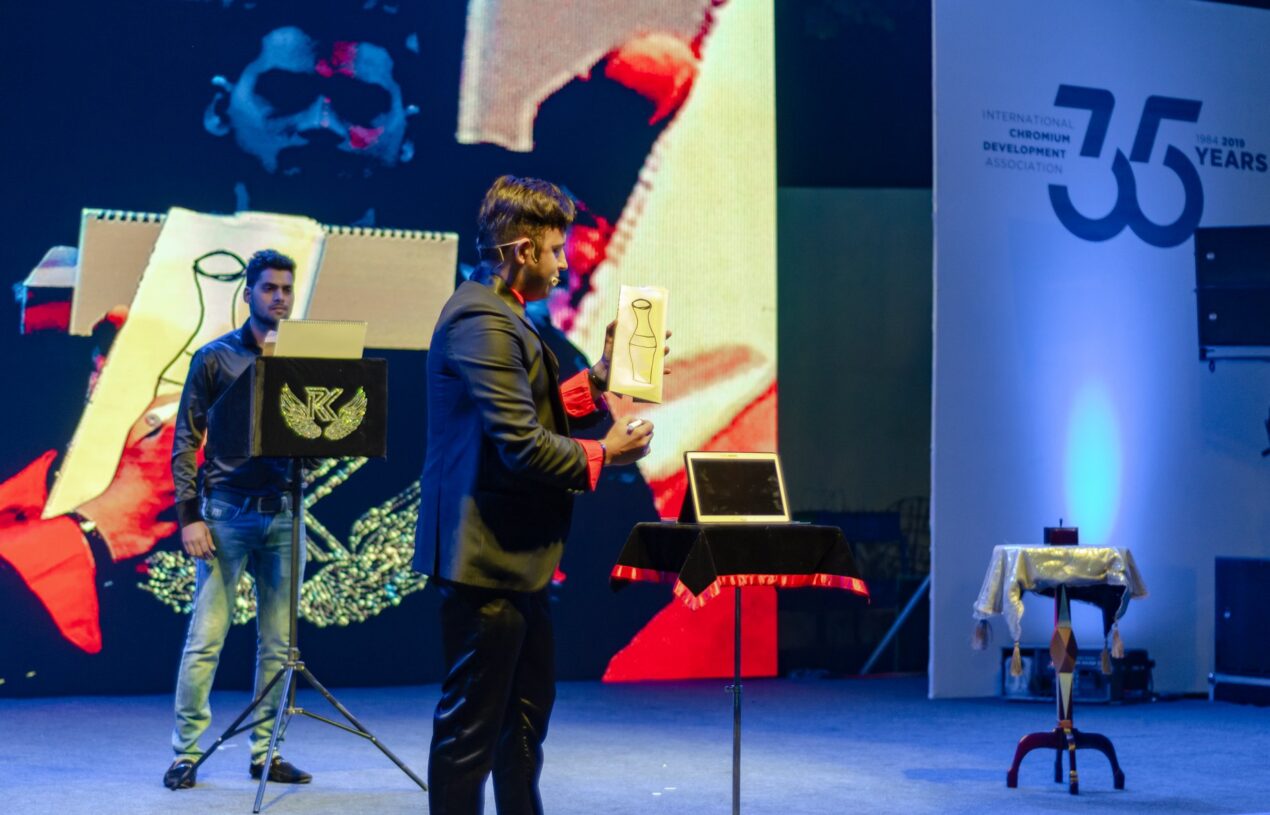Although all magicians create illusions, illusionists are those who construct illusions on a large scale to astonish and perplex spectators. There are numerous levels of deception. Some rely on delicate manipulation of props, some on dexterity of their hands, while still others pull off life-threatening feats by fleeing seemingly insurmountable situations.
To succeed as an illusionist, a magician must have a creative mind capable of outwitting his audience’s perception talents. Your aspirations of being an illusionist could come true if you create fresh and mysterious tricks, master your presentation and execution, and use the illusionist persona established by prominent forerunners like Harry Houdini or Herrmann the Great.
1. Starting off as a Novitiate
Exercise your physique. Whether you specialise in close-up magic or huge stage illusions, you’ll need to be in top physical shape to perform and execute your trick properly. Physical exertion is required while using props, struggling out of shackles, or changing quickly behind a satin curtain. If your audience notices you are out of breath, they may believe you are less than miraculous.
Harry Houdini, the renowned magician and illusionist, was said to be in such good form and possessing such incredible toughness that he claimed he could endure any hit to the stomach.
Consider cycling, jogging, or swimming as an aerobic exercise. Backstage during a show can be chaotic, so having some aerobic stamina will help you pull off your act.
Strength training, such as moderate weight lifting, can also be beneficial. Some of your gear will undoubtedly be heavy, and if it’s critical to your illusion, you may not want anybody else to set it up. In this scenario, a little muscle would be beneficial.
2 Develop your reflexes
People would try to catch you off guard and reveal you to be an ordinary man if you want to become one of the famous digital magicians. Not only will exceptional reflexes help you maintain your reputation, but they may even save your life. Some forms of magic, particularly the more adventurous escapology tricks, can be quite hazardous.
3 Improve your dexterity
A lot of magic, particularly close-up magic, needs the delicate manipulation of objects with your hands. Dexterity can sometimes mean the difference between a flawless prop execution and a blunder in front of an audience. Experiment with coin tricks. These usually necessitate and train extraordinary dexterity in your hands, and can be applied to a variety of little objects.
4 Train your thinking to be disciplined
Throughout his performance, a superb illusionist will face numerous distractions. You might have a ceiling of spikes lowering slowly closer to your head, or you might have cheering fans, lights blinking from the flashes of cell phones and cameras. A master’s ability to focus, retain presence, and remain calm is the mark of a true professional.
Concentration exercises will help you focus Visualize your illusion being performed. This has been found in studies to increase execution and focus.
5 Research the field of illusion
Many books exist that deconstruct easy tricks and describe various approaches for performing common magic. Even if you are unable to perform a certain illusion, understanding the method behind it may prove valuable in the future. Many books exist that deconstruct easy tricks and describe various approaches for performing common magic. Even if you are unable to perform a certain illusion, understanding the method behind it may prove valuable in the future.

